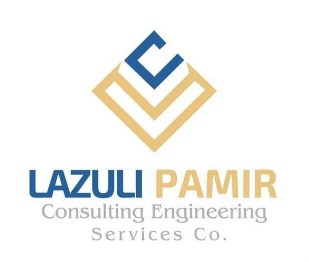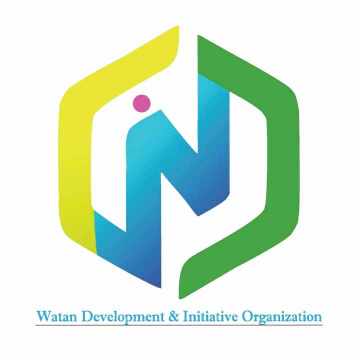Responsibilities
The primary responsibility of this position is to manage and support all technical engineering aspects related to on-site construction, ensuring compliance with project specifications and quality standards. Key responsibilities include:
1. Engineering support:
1. Conduct technical assessments and feasibility studies for site conditions, existing infrastructure, and community requirements. Conduct sites any surveys and feasibility studies for health facilities and road construction projects
2. Support or develop technical design documents including drawings, BoQs, and detailed engineering plans for infrastructure components such as roads, water supply systems, and public amenities.
2. Construction Oversight:
1. Supervise the implementation of construction works ensuring adherence to approved designs, safety standards, and quality benchmarks such as AASHTO, ASTM, ACI or local codes. Conduct regular on-site inspections to address technical issues promptly.
2. Monitor progress as per workplan on infrastructure construction activities and support in preparation of sub project workplans.
3. Conduct regular field surveys and assessments; map information and ensure proper documentation.
4. Assist in laying out road alignments, WASH and health facilities and other related components and coordinate with the contractors to discuss and resolve field-level challenges.
3. Technical Coordination:
1. Collaborate with design teams to provide input on constructability and cost-effective methods on all infrastructure activities
2. Liaise with contractors and sub-contractors to ensure timely procurement, compliance with technical specifications, and efficient execution of field activities.
3. Oversee technical surveys, risk assessments, and compliance checks throughout the project cycle.
4. Discuss project activities regularly with local communities and beneficiaries and receive their feedback on the activities and ensure they are brought to the attention of team leader.
4. Quality and Safety Compliance:
1. Ensure all engineering activities follow national and international standards.
2. Verify that materials used meet the required standards and specifications as per AASHTO, ASTM, ACI or local codes.
3. Identify and mitigate risks related to construction activities and enforce safety protocols on-site, ensuring workers and community safety.
5. Reporting and Documentation:
1. Identify, recommend and document lessons learned and ensured updated as-built drawings and maintenance manuals are produced at project completion.
2. Maintain accurate daily work logs, site inspection records, and prepare weekly and monthly progress reports detailing milestones, issues, and resolutions.
6. Stakeholder Engagement:
1. Work alongside local communities and local authorities to ensure project specifications meet local needs.
2. Support capacity building and training sessions related to project implementation methodologies.
3. Conduct any other task/s, assigned by the provincial team leader.
7. Compliance and Safety:
• Ensure that all construction activities adhere to project safety standards and UN-Habitat’s guidelines for construction and technical management, including environmental and safety protocols.
• Support corrective actions promptly to address any deviations from the pre-approved plans.
Results expected.
1. Timely Delivery: Consistent achievement of project milestones such as road construction, water system rehabilitation, and infrastructure retrofitting. Final deliverables including comprehensive technical documentation, project reports, and successful handover to local stakeholders.
2. Adherence to Quality Standards: High-quality construction that complies with design and safety standards as specified within the project documents.
3. Efficient Resource Management: Effective management of manpower, materials, and machinery to optimize costs and project timelines. Reduction of risk incidents during construction through proactive safety and quality assurance measures.
4. Effective Communication: Clear, consistent, and documented reporting of technical issues, progress, and corrective measures to the Provincial manager.
Competencies:
Professionalism: Ability to identify and resolve budgetary problems and identify sources for data collection. Shows pride in work and in achievements; demonstrates professional competence and mastery of subject matter; is conscientious and efficient in meeting commitments, observing deadlines and achieving results; is motivated by professional rather than personal concerns; shows persistence when faced with difficult problems or challenges; remains calm in stressful situations. Takes responsibility for incorporating gender perspectives and ensuring the equal participation of women and men in all areas of work.
Communication: Speaks and writes clearly and effectively; listens to others, correctly interprets messages from others and responds appropriately; asks questions to clarify and exhibits interest in having two-way communication; tailors’ language, tone, style and format to match audience; demonstrates openness in sharing information and keeping people informed.
Teamwork: Works collaboratively with colleagues to achieve organizational goals; solicits input by genuinely valuing others’ ideas and expertise; is willing to learn from others; places team agenda before personal agenda; supports and acts in accordance with final group decisions, even when such decisions may not entirely reflect their own position; shares credit for team accomplishments and accepts joint responsibility for team shortcomings.
Qualifications
1. Education: A Bachelor of Science degree in Civil Engineering from a reputable public university is required. Advanced certifications in construction or project management (PMP, PRINCE2 etc), quality control, or related technical fields will be viewed favorably.
2. Experience:
a. A minimum of 4 years of progressive experience in construction and rehabilitation projects, infrastructure development, or construction project management with a strong technical focus.
b. Demonstrable experience in managing large scale infrastructure projects such as road construction WASH system or community amenities.
3. Technical Competencies:
a. In-depth knowledge of engineering and structural design principles, construction materials, and modern construction practices relevant to community infrastructure and amenities.
b. Proficiency in engineering design software like AutoCAD, Civil 3D and project management tools. Expertise in the review and preparation of technical documentation such as detailed designs, scopes of work, and bills of quantities.
c. Familiarity with risk management procedures and quality assurance protocols in construction projects.
d. Knowledge of relevant local and international engineering standards and safety regulations.
e. Strong IT skills including proficiency in standard industry software for drafting, project management, and reporting.
4. Personal Skills:
a. Excellent analytical and problem-solving skills with the ability to make swift technical decisions.
b. Effective communication and interpersonal skills to liaise with contractors, technical teams, and stakeholders.
c. Strong organizational skills and the ability to manage multiple technical tasks concurrently while maintaining clarity on role responsibilities.
d. Ability to work in challenging environments under tight deadlines.
e. Flexibility to travel to project sites and work collaboratively in a multi-disciplinary team.
5. Language:
a. English and French are the working languages of the United Nations Secretariat. For the post advertised, fluency in oral and written English and Local/National Language of the duty station is required.
6. Other:
a. Build support with national counterparts, during the project period; Ensure high-quality and timely achievement of relevant activties and targets;



